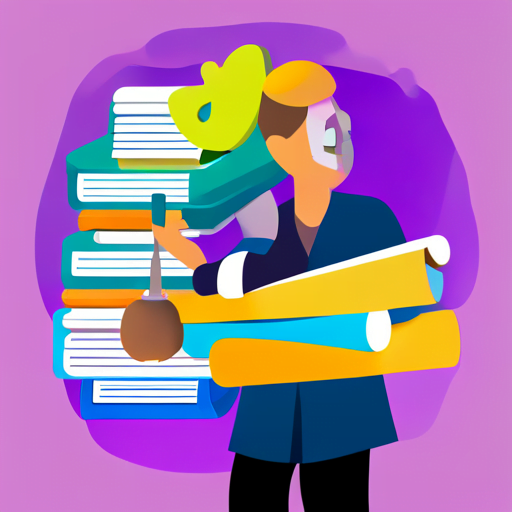Are you tired of slogging through dense language textbooks, struggling to stay focused and engaged? Maybe it’s time to switch to audiobooks.
With their convenience, accessibility, and variety of options, audiobooks offer a superior language learning experience compared to traditional textbooks.
Not only do audiobooks improve your listening and comprehension skills, but they also cost less than traditional language classes.
Plus, with the ability to listen to audiobooks on the go, you can fit language learning into your busy schedule.
So, why waste time with outdated textbooks when you can embrace the modern and effective method of audiobooks?
Table of Contents
The Advantages of Audiobooks for Language Learning

You’ll be amazed at how much more enjoyable and effective your language learning experience can be with the power of audio. Audiobooks offer a unique and immersive way to learn a new language.
Listening to native speakers can help you improve your pronunciation and accent, as well as your listening and comprehension skills. With audiobooks, you can listen to the language being spoken at a natural pace, allowing you to develop a better understanding of the language’s rhythm and intonation. You can also pause and rewind as many times as you need to fully understand a particular word or phrase.
Another advantage of audiobooks for language learning is that they can be enjoyed on-the-go. Whether you’re commuting to work, exercising, or doing chores, you can continue to immerse yourself in the language and make progress in your learning. This makes language learning more convenient and accessible, allowing you to fit it into your daily routine.
Audiobooks are also a great way to supplement traditional language learning methods, such as textbooks and classes. By combining different learning approaches, you can accelerate your learning and achieve fluency faster. So, if you want to make your language learning experience more enjoyable and effective, give audiobooks a try!
How Audiobooks Help Improve Listening and Comprehension Skills

Improving one’s listening and comprehension skills can be achieved with the use of audio materials in language acquisition. Listening to audiobooks allows you to hear the language spoken in a natural way, which helps you develop an ear for the language. With audiobooks, you can hear proper pronunciation, intonation, and inflection. This is especially helpful for those learning a language that has a different sound system than their native language.
Moreover, listening to audiobooks allows you to familiarize yourself with the different accents and dialects of the language you’re learning. Audiobooks can also help you improve your comprehension skills. By listening to the language spoken at a natural pace, you can learn to understand the language more easily.
Audiobooks also allow you to hear the context in which words and phrases are used, which is crucial for understanding their meaning. Moreover, you can listen to audiobooks at your own pace, pause when you need to, and listen to certain parts again, which can help you better understand difficult concepts.
Overall, incorporating audiobooks into your language learning routine can greatly enhance your listening and comprehension skills.
Convenience and Accessibility of Audiobooks

The ease and availability of audiobooks make them an attractive option for language learners looking to incorporate language practice into their daily routines. Audiobooks can be played on any device, making them easily accessible to learners on-the-go.
Whether you’re commuting to work or taking a walk, you can listen to an audiobook and practice your language skills at the same time. Additionally, audiobooks eliminate the need for physical space and can be stored easily on a device or in the cloud.
This means that learners can have access to a variety of audiobooks without having to worry about storage or clutter. Audiobooks also offer convenience for learners who may have difficulty reading due to visual impairments or dyslexia. With audiobooks, learners can still engage with the material and improve their language skills.
Variety of Audiobooks Available for Language Learning

With a diverse selection of audiobooks available for language learners, there’s a greater opportunity to find engaging and relevant material that can enhance language skills.
Whether you’re looking to improve your pronunciation, expand your vocabulary, or simply immerse yourself in the language, there are audiobooks that cater to your needs and interests. From classic literature to contemporary podcasts, there’s no shortage of options for language learners who want to improve their skills with the help of audio materials.
In addition to the variety of content available, audiobooks also offer the convenience of being able to listen and learn on the go. Whether you’re commuting to work, exercising, or just relaxing at home, you can easily incorporate language learning into your daily routine with the use of audiobooks.
With the ability to pause, rewind, and repeat as needed, you can also take your time with challenging material and ensure that you’re truly absorbing the language.
Overall, the variety and accessibility of audiobooks make them a valuable tool for anyone looking to improve their language skills.
Cost-Effectiveness of Audiobooks Compared to Language Classes

It’s important to consider the financial benefits of utilizing audio materials for language acquisition compared to traditional classroom settings. Language classes can be quite expensive and may not fit into your schedule. With audiobooks, you have the flexibility to learn whenever and wherever you want, without having to worry about missing classes or paying for expensive textbooks.
In addition, audiobooks are often more affordable than language classes or textbooks. Many audiobooks can be purchased or rented for a fraction of the cost of a language class, and some are even available for free through libraries or online resources. By choosing audiobooks as your language learning tool, you can save money while still gaining valuable language skills.
Tips for Using Audiobooks Effectively in Language Learning

Are you struggling to use audiobooks effectively in your language learning journey? Here are some tips to help you get the most out of this powerful tool.
First, make sure to choose the right audiobook for your level and interests.
Second, set realistic goals that align with your learning style and schedule.
Finally, practice active listening and note-taking to fully engage with the material and reinforce your learning.
Remember to use contractions to sound more natural!
Choosing the Right Audiobook
Picking the right audiobook is crucial for successfully improving your language skills. Start by selecting a book that matches your current level and interests. If you choose a book that’s too difficult, you may become discouraged and lose motivation. On the other hand, if the book’s too easy, you may not challenge yourself enough and fail to make significant progress.
Consider the narrator’s accent and language proficiency as well. If you’re learning British English, it may be more beneficial to listen to a narrator with a British accent. Likewise, if you’re learning Spanish, you may want to choose a narrator who’s a native speaker.
Finally, make sure that the audiobook is engaging and enjoyable to listen to. If you find the book boring, you’ll be less likely to continue listening and practicing your language skills.
Setting Realistic Goals
Setting realistic goals is essential for making progress in language learning, as it helps you stay motivated and focused on achievable objectives. When selecting an audiobook for language learning, consider your current level and how much time you have to dedicate to studying.
It’s important to choose a book that is challenging, but not overwhelming, and that you can realistically finish within a reasonable timeframe. Once you’ve selected your audiobook, set a specific goal for what you want to achieve. This could be as simple as listening to one chapter a day or completing the entire book within a certain timeframe.
By setting a specific goal, you can measure your progress and celebrate your achievements along the way. Remember to be flexible with your goals and adjust them as needed to accommodate any unexpected challenges that may arise. With realistic goals in place, you’ll be well on your way to mastering a new language with the help of audiobooks.
Active Listening and Note-Taking
To truly enhance your language skills, it’s crucial that you actively listen and take notes while engaging with the material. Simply listening to an audiobook or reading a textbook passively won’t provide the same level of retention and understanding.
When actively listening, make sure to focus on the key points and take note of any new vocabulary words or phrases. This will not only help you remember the material better, but also provide you with a reference tool for future studying.
Note-taking is just as important as active listening. Writing down important information or new vocabulary words will help reinforce the material in your memory. Additionally, reviewing your notes later on can help solidify your understanding and allow you to spot any areas where you may need further practice.
Don’t be afraid to pause the audiobook or take a break from reading to jot down notes – the extra effort will pay off in the long run and help you progress more quickly in your language learning journey.
Why Audiobooks are the Better Language Learning Tool

It’s clear that when it comes to improving your language skills, there’s simply no contest between the traditional study method and the immersive experience offered by a well-crafted audio book.
Audiobooks provide a unique opportunity to learn a language in a way that’s engaging, interactive, and enjoyable. By listening to native speakers and following along with a written transcript, you can improve your listening and comprehension skills, as well as your ability to speak and write in the target language.
Furthermore, audiobooks offer a level of flexibility that simply can’t be matched by traditional textbooks. You can listen to an audiobook while commuting to work, doing household chores, or even while exercising. This means that you can immerse yourself in the language without sacrificing other important aspects of your life.
Additionally, audiobooks often come with interactive exercises and quizzes, allowing you to test your understanding and reinforce your learning.
Overall, if you’re serious about improving your language skills, audiobooks are the way to go.
Frequently Asked Questions
How do audiobooks compare to traditional language classes in terms of learning outcomes?
If you’re considering learning a new language, you might be wondering whether to take traditional language classes or try something different like audiobooks.
When it comes to learning outcomes, audiobooks can be just as effective as traditional classes. In fact, many people find that audiobooks are more convenient and flexible, allowing them to learn at their own pace and on their own schedule.
Plus, with audiobooks, you can practice listening and speaking skills in a way that feels more natural and immersive than simply reading from a textbook.
So if you’re looking for a more modern and accessible way to learn a new language, audiobooks could be the perfect choice for you.
Are there any disadvantages to using audiobooks for language learning?
When using audiobooks for language learning, there are a few potential drawbacks to keep in mind. First and foremost, audiobooks may not be as effective for those who prefer visual learning methods.
Additionally, some audiobooks may not include written transcripts or translations, which can make it difficult to fully understand and retain new vocabulary.
Finally, audiobooks may not be as interactive as traditional language classes or language exchange programs, which can limit opportunities for practice and feedback.
However, despite these limitations, audiobooks can still be an excellent tool for language learning, particularly for those who prefer auditory learning methods or who need a flexible and convenient way to fit language practice into their busy schedules.
Can audiobooks be used as a standalone tool for language learning or should they be used in conjunction with other resources?
If you’re looking to learn a new language, audiobooks can be a great resource to utilize. However, they shouldn’t be your only tool. While audiobooks can help with listening comprehension and pronunciation, they may not provide enough depth for comprehensive language learning.
It’s important to also use other resources, such as textbooks or language classes, to ensure a well-rounded education. By combining different resources, you can maximize your language learning potential and achieve fluency faster.
Are there any specific language skills that audiobooks are not effective for improving?
If you’re looking to improve your language skills, it’s important to know the strengths and weaknesses of different learning tools.
While audiobooks can be incredibly helpful for practicing listening comprehension, there are some language skills they may not be as effective for improving.
For example, if you’re looking to build your vocabulary or practice grammar rules, you may want to supplement your audiobook listening with additional resources such as textbooks or language exercises.
However, when it comes to developing your ability to understand and speak a language in real-world situations, audiobooks can be an invaluable tool.
How do audiobooks compare to other language learning tools, such as language learning apps or immersion programs?
If you’re looking for a language learning tool that can keep up with your busy schedule, you may want to consider audiobooks.
Compared to other language learning tools like language learning apps or immersion programs, audiobooks offer a more flexible and convenient way to learn a new language.
With audiobooks, you can listen to native speakers and immerse yourself in the language anytime and anywhere, whether you’re commuting, working out, or doing household chores.
Plus, audiobooks often come with accompanying texts or translations, which can help you reinforce your comprehension and vocabulary.
Whether you’re a beginner or an advanced learner, audiobooks can be a valuable addition to your language learning toolkit.
Conclusion
So, there you have it – audiobooks are the better language learning tool. The advantages of audiobooks for language learning are undeniable.
They help improve listening and comprehension skills, are convenient and accessible, offer a variety of options, and are cost-effective compared to language classes.
But the key to using audiobooks effectively is to develop a plan and stick to it. Make sure to choose the right level of difficulty, listen actively, take notes, and practice speaking.
With these tips and the right attitude, audiobooks can be an excellent tool for mastering a new language. So why not give them a try?
Happy listening and learning!
